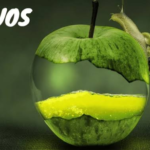Өйёу: Comprehensive Overview
Өйёу represents far more than just a word or symbol. Embedded within it is the history, traditions, and values of a culture that has thrived for centuries. Understanding its depth offers insight into the heritage of a people and the development of their linguistic identity.
In this article, we will explore the cultural and linguistic significance of it, its impact on traditions, and how it shapes communication patterns. Whether you’re a linguistic enthusiast or someone with a deep appreciation for cultural heritage, this deep dive will enlighten you.
What is Өйёу?
It can be a word, phrase, or concept central to a particular culture. The meaning varies depending on the context and the community in which it is used. For some cultures, it represents a fundamental aspect of life, interwoven with rituals and customs. Understanding the role of it requires an exploration of its various meanings, applications, and the influence it exerts on both language and cultural practices.
Origin and Etymology of Өйёу
The origin of it is rooted in the history and evolution of specific languages. Linguistic studies reveal that the word likely developed over centuries, shaped by migrations, cultural exchanges, and historical events. Its structure and pronunciation might offer clues to the linguistic family it belongs to, as well as the interactions between cultures that contributed to its development.
In many cases, it carries with it stories of ancestors, significant historical events, or symbolic meanings tied to nature or spirituality. These connections make it more than just a word, turning it into a bridge between past and present.
Linguistic Structure and Usage
The structure of Өйёу, including its phonetic composition and grammatical placement, gives clues to the linguistic rules of the culture that uses it. Whether it is used in formal speech, storytelling, or casual conversation can indicate its role in communication.
Many languages use it as a focal point in expressing important ideas, often as a metaphor or symbol. For example, a simple phrase may carry a profound meaning, which is why it has become deeply embedded in the linguistic fabric of the communities that use it.
In some cultures, it might appear in proverbs, songs, and oral traditions. It often serves as a condensed form of wisdom passed down through generations. This usage contributes to the ongoing evolution of the term and its cultural significance.
Cultural Significance of Өйёу
The cultural importance of it cannot be overstated. Its meaning extends beyond language and enters the realm of rituals, ceremonies, and social customs. Many cultures place great value on their words and phrases, seeing them as carriers of tradition and identity.
Role in Rituals and Traditions
It often appears in key cultural rituals. For example, in some ceremonies, it may be invoked during moments of transition, such as births, weddings, or funerals. In these contexts, it acts as a verbal symbol of the community’s beliefs and values.
The use of it in ritual highlights its power to connect people with their past, grounding them in a shared identity. Through these ceremonies, the word becomes a living part of the culture, continuously reinforcing collective beliefs.
Өйёу in Folklore and Mythology
In many cultures, the term Өйёу appears in folklore and mythological stories. These tales are often passed down orally, and it holds a special place within them. It may serve as a name for legendary figures or as a word of power used to shape the narrative.
Folklore often depicts it as having magical or spiritual properties. In some stories, uttering the word can summon the spirits of ancestors or connect individuals to the divine. These mythological meanings further deepen the cultural roots of it.
Symbolism and Spiritual Meaning
Beyond its practical use in language, it often carries symbolic weight. It may represent a spiritual journey, a deep connection to nature, or the wisdom of the ancestors. In many cultures, words like Өйёу are believed to have a spiritual essence, embodying the values and beliefs of a community.
This symbolic nature extends to its presence in art, music, and literature. By examining how it is depicted in these forms of expression, one can gain a fuller understanding of its cultural resonance.
The Evolution of Өйёу in Modern Times
As societies evolve, so too does language. The role of it has adapted to fit modern communication methods, including digital media. Despite these changes, its cultural and linguistic significance remains intact, serving as a reminder of the power of language to connect people across time.
Өйёу in Contemporary Communication
In today’s digital age, it continues to hold significance, though its usage may have shifted. Social media platforms, for instance, provide new ways for people to express cultural identity. As a result, it might appear in hashtags, online discussions, or even memes.
Despite the modernization of communication, the essence of it persists. It remains a tool for cultural connection, reminding individuals of their heritage even in an age of rapid globalization.
The Preservation of Өйёу
As languages around the world face extinction, preserving words like it becomes increasingly important. Linguists and cultural preservationists work to ensure that these culturally significant words are documented and passed down to future generations.
Efforts to preserve it often involve the recording of oral histories, the creation of language learning resources, and the inclusion of the word in modern literature or media. By doing so, they ensure that the word remains a living part of the culture.
Importance of Linguistic Heritage
Language preservation is essential not only for understanding cultural identity but also for maintaining linguistic diversity.It, as part of this heritage, represents the intersection of history, culture, and language. When a word like Өйёу is lost, a part of the cultural soul disappears with it.
Global Efforts in Language Preservation
Across the globe, organizations are working to preserve languages that are at risk of disappearing. These efforts often focus on documenting languages, creating educational resources, and encouraging younger generations to learn their ancestral tongue.
Preserving it is about more than just saving a word—it’s about safeguarding a culture. When future generations can access the full depth of their linguistic heritage, they gain a stronger sense of who they are and where they come from.
Conclusion
The significance of Өйёу reaches far beyond its role as a word. It represents a complex tapestry of cultural, historical, and linguistic threads woven together over centuries. By exploring its meaning, usage, and evolution, we gain insight into the lives and values of the people who use it.
Preserving words like this is critical for maintaining the richness of human diversity. As long as it continues to be used in rituals, folklore, and modern communication, it will remain a vital part of cultural heritage, ensuring its legacy for generations to come.







